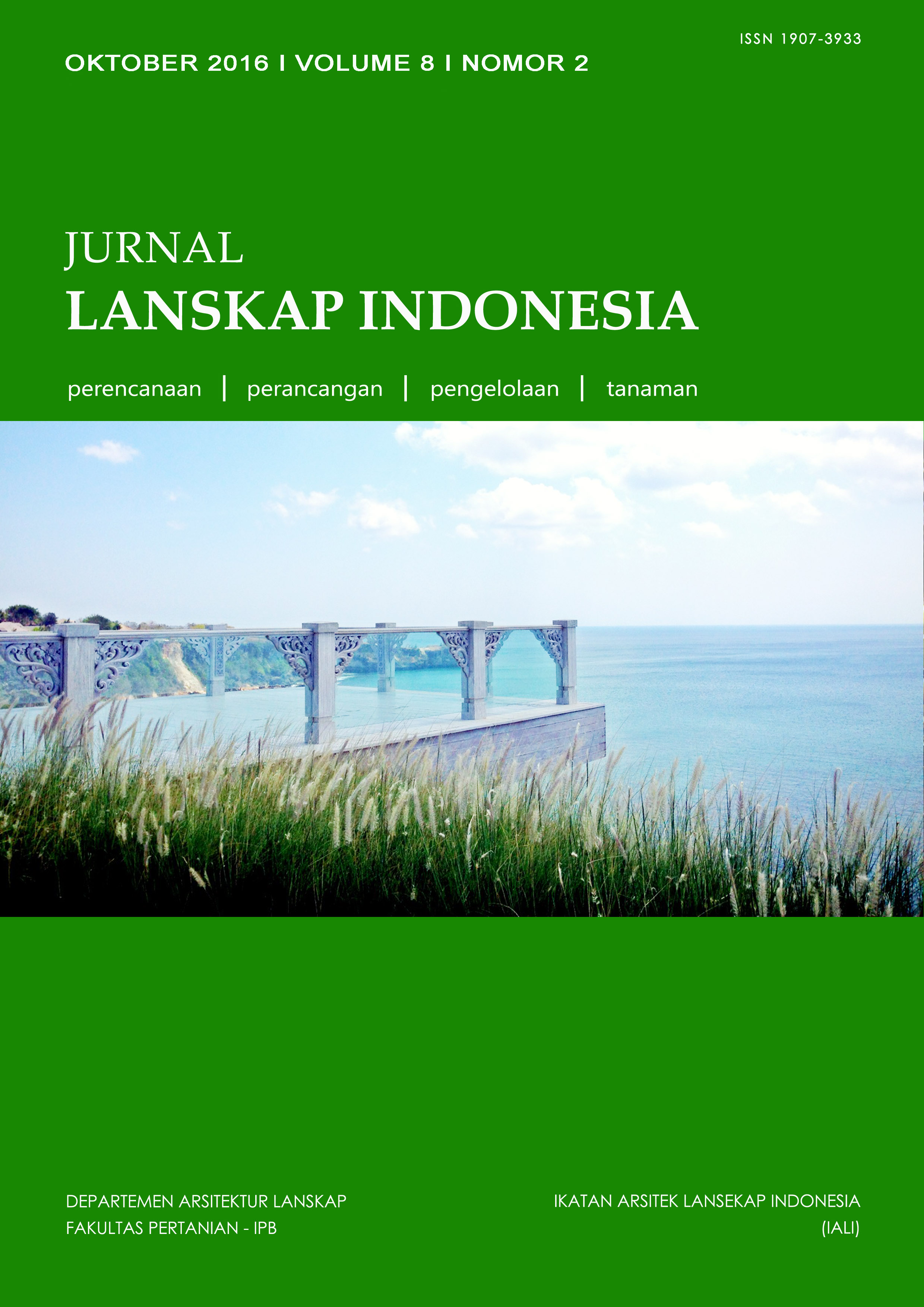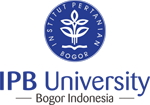PERENCANAAN LANSKAP KAWASAN WISATA BERKELANJUTAN DI KECAMATAN CISARUA, KABUPATEN BOGOR
Abstract
Indonesia is a tropical country, has various natural resources and social resources. Because of that Indonesia has many place as destination for recreation and tourism areas, but various positive and negative impact happened from that. This study aims to identify and analyze the landscape visual quality, the public acceptability of the development of tourism, tourist characteristics and preferences, and planning tourism zone of the mountains for the development of the tourism area. Case studies conducted in Cisarua sub-district which is part of the Puncak mountainous tourist area is very well known in West Java, with an area of 66.72 km2. Data obtained from field observation, published data, government reports and interviews with local residents, and tourists who visit the area. Data were statistically analyzed qualitatively and quantitatively by using a scoring method based assessment criteria, Geographic Information System (GIS) and SBE method (Scenic Beauty Estimation). The results showed that local communities can receive tourism development because it has increased their revenues from tourism. Tourism have been shifted their livelihood from agriculture to tourism. The tourists, they are less comfortable with the current state of overcrowding by vehicles, less clean and less comfortable, as well as the occurrence of significant changes in mountain view. To maintain the sustainability of the environment, the development must be carried out in areas that have a high potential tourism zone. Besides protecting the environment, also positive economic impact for the local community can continue and increase demand, so sustainable tourism concept needs to be done in this area.Downloads
This journal permits and encourages authors to post items submitted to the journal on personal websites or institutional repositories both prior to and after publication, while providing bibliographic details that credit, if applicable, its publication in this journal. However, after the article is submitted and published in this journal, it is fully copyrighted by the Jurnal Lanskap Indonesia or JLI. If excerpts from other copyrighted works are included, the author must obtain written permission from the copyright owner and give credit to the source in the article. Then, the writer or reader is allowed to copy, share, and redistribute articles/material in any form. But it must still include the appropriate source and credit because the article in this journal is licensed by Creative Commons Attribution 4.0 International License (CC BY 4.0).
I. Proposed Policy for Journals That Offer Open Access
Authors who publish with this journal agree to the following terms:
- Authors retain copyright and grant the journal right of first publication with the work simultaneously licensed under a Creative Commons Attribution License that allows others to share the work with an acknowledgement of the work's authorship and initial publication in this journal.
- Authors are able to enter into separate, additional contractual arrangements for the non-exclusive distribution of the journal's published version of the work (e.g., post it to an institutional repository or publish it in a book), with an acknowledgement of its initial publication in this journal.
- Authors are permitted and encouraged to post their work online (e.g., in institutional repositories or on their website) prior to and during the submission process, as it can lead to productive exchanges, as well as earlier and greater citation of published work (See The Effect of Open Access).
II. Proposed Policy for Journals That Offer Delayed Open Access
Authors who publish with this journal agree to the following terms:
- Authors retain copyright and grant the journal right of first publication, with the work after publication simultaneously licensed under a Creative Commons Attribution License that allows others to share the work with an acknowledgement of the work's authorship and initial publication in this journal.
- Authors are able to enter into separate, additional contractual arrangements for the non-exclusive distribution of the journal's published version of the work (e.g., post it to an institutional repository or publish it in a book), with an acknowledgement of its initial publication in this journal.
- Authors are permitted and encouraged to post their work online (e.g., in institutional repositories or on their website) prior to and during the submission process, as it can lead to productive exchanges, as well as earlier and greater citation of published work (See The Effect of Open Access).



























